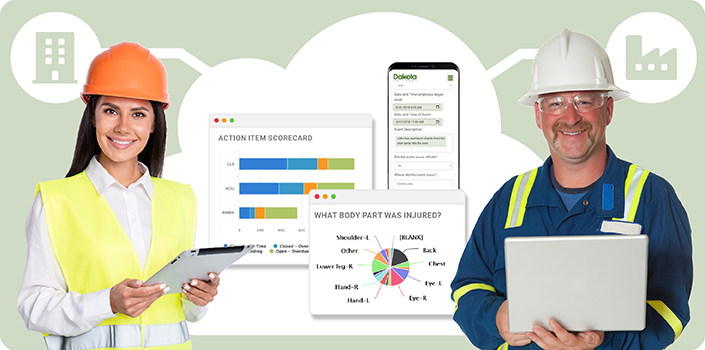Ensuring Product Safety: EHS Product Safety Group
The EHS Product Safety Group (PSG) is a crucial component of the Environmental, Health, and Safety (EHS) management system within organizations. This group is tasked with ensuring product safety for consumers and compliance with regulations and standards. The EHS PSG identifies potential product hazards, assesses risks, and implements risk mitigation measures.
They oversee product safety throughout the entire lifecycle, from design and development to manufacturing, distribution, and disposal. The group collaborates with various departments, including research and development, manufacturing, quality control, and regulatory affairs, to prioritize product safety. The EHS PSG maintains current knowledge of product safety regulations and standards.
This involves monitoring changes in legislation, industry guidelines, and best practices to ensure products meet all necessary requirements. The group may also conduct internal audits and assessments to identify areas for improvement and implement corrective actions. The EHS PSG plays a vital role in protecting consumers from potential harm and ensuring product safety.
Key Takeaways
- EHS Product Safety Group plays a crucial role in ensuring consumer safety by managing product safety and compliance.
- EHS management software helps in streamlining product safety processes and ensures efficient management of product safety data.
- Product Safety Group plays a vital role in ensuring consumer safety by conducting risk assessments, product testing, and monitoring regulatory compliance.
- PSG works to ensure product safety by collaborating with industry experts, conducting research, and developing best practices for product safety.
- Joining a Product Safety Group provides access to valuable resources, networking opportunities, and the latest information on product safety regulations and standards.
- The future of product safety and EHS management software is focused on leveraging technology for better risk assessment, data management, and compliance monitoring.
- EHS Product Safety Group has a significant impact on consumer protection by ensuring that products in the market meet safety standards and regulations.
The Role of EHS Management Software in Product Safety
Centralized Product Safety Data Management
One of the key features of EHS management software is its ability to track and manage product safety data. This includes information related to product specifications, material safety data sheets (MSDS), regulatory requirements, and testing results. By centralizing this data in a digital platform, the EHS PSG can easily access and analyze information to make informed decisions about product safety.
Automated Workflows and Reporting
Additionally, EHS management software can automate workflows and notifications, ensuring that tasks related to product safety are completed in a timely manner. Furthermore, EHS management software enables the PSG to generate reports and dashboards to monitor key performance indicators (KPIs) related to product safety. This allows the group to identify trends, track progress, and communicate important information to stakeholders within the organization.
Enhanced Product Safety Management
Overall, EHS management software plays a critical role in supporting the efforts of the EHS Product Safety Group by providing a comprehensive platform for managing product safety data and processes.
The Importance of Product Safety Group in Ensuring Consumer Safety

The Product Safety Group (PSG) plays a crucial role in ensuring consumer safety by proactively identifying and addressing potential hazards associated with products. Consumer safety is a top priority for organizations, as product-related incidents can have serious consequences for both consumers and the company’s reputation. The PSG works to prevent these incidents by conducting thorough risk assessments, implementing safety measures, and monitoring product safety throughout the entire lifecycle.
In addition to preventing potential harm to consumers, the PSG also plays a key role in ensuring that products comply with relevant regulations and standards. This includes staying up-to-date with changes in legislation, industry guidelines, and best practices to ensure that products meet all necessary requirements. By ensuring compliance with regulations, the PSG helps to protect consumers from unsafe or non-compliant products.
Furthermore, the PSG is responsible for managing product recalls and corrective actions in the event that a safety issue is identified. This includes coordinating with regulatory agencies, communicating with consumers, and implementing corrective measures to address the issue. By taking swift and effective action in response to safety concerns, the PSG helps to minimize the impact on consumers and maintain trust in the organization’s products.
How PSG Works to Ensure Product Safety
| PSG Safety Measures | Description |
|---|---|
| Product Testing | PSG conducts rigorous testing on all products to ensure they meet safety standards. |
| Quality Control | Regular quality checks are performed to identify and address any safety issues. |
| Compliance with Regulations | PSG adheres to all relevant safety regulations and standards in the industry. |
| Customer Feedback | PSG actively seeks and responds to customer feedback regarding product safety. |
The Product Safety Group (PSG) works diligently to ensure product safety through a variety of processes and activities. One of the primary functions of the PSG is to conduct thorough risk assessments for products throughout their lifecycle. This involves identifying potential hazards associated with products, evaluating the likelihood and severity of harm, and implementing measures to mitigate these risks.
By conducting comprehensive risk assessments, the PSG can proactively address safety concerns before products are released to the market. Additionally, the PSG is responsible for implementing safety measures and controls to minimize risks associated with products. This may include developing product specifications, implementing quality control measures during manufacturing, and providing clear instructions for safe use and handling.
By implementing these safety measures, the PSG helps to ensure that products are safe for consumers. Furthermore, the PSG plays a critical role in monitoring and managing product safety throughout the entire lifecycle. This includes conducting regular audits and assessments to identify areas for improvement, tracking performance indicators related to product safety, and implementing corrective actions as needed.
By continuously monitoring product safety, the PSG can identify potential issues early on and take proactive measures to address them.
The Benefits of Joining a Product Safety Group
Joining a Product Safety Group (PSG) offers numerous benefits for organizations looking to prioritize product safety and compliance. One of the key benefits of joining a PSG is access to expertise and resources related to product safety. PSG members have the opportunity to collaborate with industry experts, share best practices, and stay up-to-date with the latest regulations and standards.
This can help organizations improve their product safety processes and ensure compliance with relevant requirements. Additionally, joining a PSG provides networking opportunities with other organizations that share a commitment to product safety. This allows members to learn from each other’s experiences, exchange information about emerging trends and challenges, and build valuable connections within the industry.
By participating in a PSG, organizations can gain insights into industry best practices and innovative approaches to product safety. Furthermore, joining a PSG can enhance an organization’s reputation and credibility within the industry. By demonstrating a commitment to product safety through membership in a PSG, organizations can build trust with consumers, regulatory agencies, and other stakeholders.
This can help differentiate their products in the market and position them as leaders in product safety.
The Future of Product Safety and EHS Management Software

Enhanced Capabilities for Product Safety Management
This includes enhanced features for risk assessment, compliance management, incident reporting, and corrective action tracking. With these advanced capabilities, PSGs can more effectively manage product safety data and processes, ensuring a higher level of safety for consumers.
Leveraging Emerging Technologies for Improved Decision-Making
Furthermore, EHS management software is expected to leverage emerging technologies such as artificial intelligence (AI) and machine learning to improve decision-making related to product safety. These technologies can help organizations analyze large volumes of data more effectively, identify patterns and trends related to product safety, and make proactive recommendations for mitigating risks. By harnessing the power of AI and machine learning, EHS management software can help PSGs make more informed decisions about product safety.
Streamlining Processes through Integration
Additionally, EHS management software is likely to become more integrated with other systems within organizations, such as enterprise resource planning (ERP) systems and supply chain management platforms. This integration can streamline processes related to product safety by providing seamless access to relevant data across different departments. By integrating EHS management software with other systems, PSGs can improve collaboration and communication within the organization.
The Impact of EHS Product Safety Group on Consumer Protection
In conclusion, the EHS Product Safety Group (PSG) plays a critical role in ensuring consumer protection by proactively identifying and addressing potential hazards associated with products. The PSG works diligently to assess risks, implement safety measures, monitor product safety throughout the lifecycle, and ensure compliance with regulations and standards. By prioritizing consumer safety, PSGs help organizations build trust with consumers, maintain compliance with regulations, and minimize the impact of potential safety incidents.
Furthermore, EHS management software plays a crucial role in supporting the efforts of PSGs by providing a centralized platform for managing product safety data and processes. This software enables PSGs to streamline workflows, improve data accuracy, generate reports and dashboards for monitoring performance indicators related to product safety. Looking ahead, advancements in EHS management software are expected to further enhance the capabilities of PSGs by offering advanced features for risk assessment, compliance management, incident reporting, and corrective action tracking.
Additionally, integration with emerging technologies such as artificial intelligence (AI) and machine learning is likely to improve decision-making related to product safety. Overall, the impact of EHS Product Safety Groups on consumer protection cannot be overstated. By prioritizing consumer safety through proactive risk assessment and compliance management supported by advanced EHS management software capabilities, PSGs play a crucial role in ensuring that products are safe for consumers.
Check out this article on visitor management systems to learn more about how EHS Product Safety Group can enhance workplace safety and security by implementing advanced visitor tracking and monitoring solutions. This technology can help organizations keep track of who is entering and exiting their facilities, ensuring that only authorized individuals are on-site and providing valuable data for emergency response planning.
FAQs
What is the EHS Product Safety Group?
The EHS Product Safety Group is a team or department within a company that is responsible for ensuring the safety and compliance of products with environmental, health, and safety regulations.
What are the responsibilities of the EHS Product Safety Group?
The EHS Product Safety Group is responsible for conducting product safety assessments, identifying potential hazards, ensuring compliance with regulations, and implementing safety measures to protect consumers and the environment.
Why is the EHS Product Safety Group important?
The EHS Product Safety Group plays a crucial role in protecting consumers, workers, and the environment from potential harm or hazards associated with products. They help companies meet regulatory requirements and maintain a positive brand reputation.
What are some common tasks of the EHS Product Safety Group?
Common tasks of the EHS Product Safety Group include conducting product risk assessments, developing safety protocols, providing training on product safety, and ensuring proper labeling and documentation.
How does the EHS Product Safety Group collaborate with other departments?
The EHS Product Safety Group collaborates with various departments such as research and development, manufacturing, quality control, and marketing to ensure that products are safe, compliant, and meet regulatory standards.



